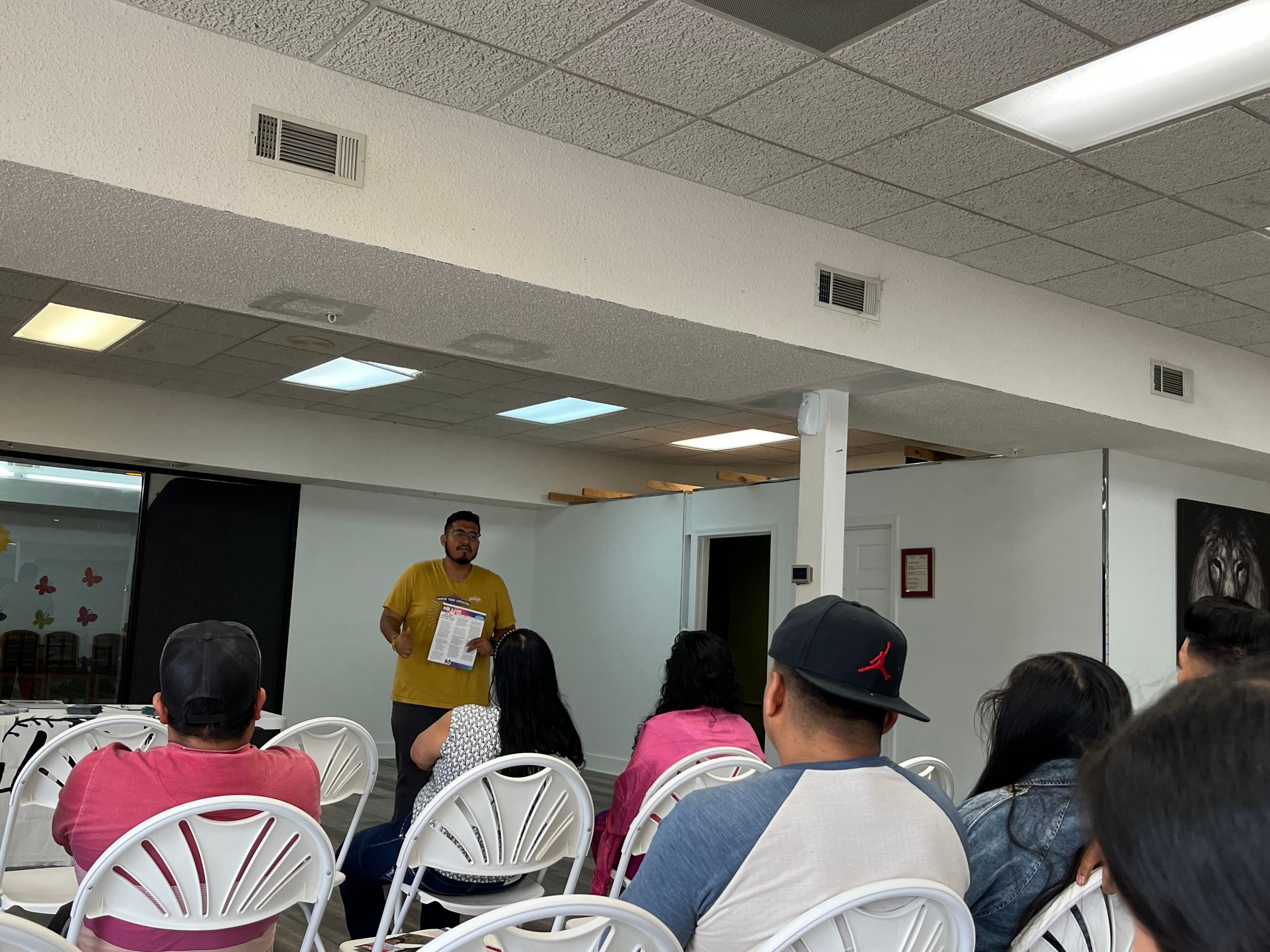New Georgia law on immigration enforcement leaves local immigrants confused and anxious

“What if you’re looking for a job on the street and a police officer comes and asks you for your papers?” “Can someone with papers get in trouble for giving a ride to someone who doesn’t have them?”
Those were just some of the questions raised by congregants of a Cherokee County Hispanic church who gathered to learn about a Georgia immigration bill signed into law in May. The questions reflected the confusion and anxiety roiling metro Atlanta immigrant communities in the wake of the new law’s signing. Known as House Bill 1105, the law calls for closer collaboration between local law enforcement and federal immigration officials — and the answers to the above questions are no and no.
Proponents say HB 1105 will improve public safety. Community advocates warn it will lead to racial profiling and the over-policing of Hispanic residents. They also worry community members will be less willing to report crime.
As Giovani Serrano, an organizer with the Georgia Latino Alliance for Human Rights (GLAHR) said at the June 1 community gathering, giving local law enforcement an immigration-related mandate could lead to violations because “police just don’t know a lot about the immigration system.”
He explained to churchgoers that people without legal status should be impacted by HB 1105 only if they’re booked into jail — a scenario that looms as not-too-distant for a population that is often forced to take to the road despite not having access to driver’s licenses, a jailable offense in Georgia.
HB 1105 requires jailers to hold anyone suspected of being in the U.S. without authorization if that person is wanted by U.S. Immigration and Customs Enforcement. Sheriffs who fail to notify federal immigration agents once they identify someone who may be in the country illegally face potential sanctions.
Sheriffs are also required to apply for inclusion in an ICE program known as 287(g), which also furthers collaboration between local law enforcement and immigration officials. According to the Associated Press, the Biden administration has de-emphasized the program, so it isn’t clear Georgia sheriffs would be able to sign on.
During the Trump presidency, close ties between local police and federal agents made metro Atlanta a national leader in immigration enforcement. Those ties were nixed following the 2020 election, when newly elected sheriffs moved away from 287(g).
Isis Romero described the time before 2020 as an “open hunting season on Latinos.” She remembers working with neighbors to keep an eye out for ICE, and feeling consistently scrutinized by police because of her race. It was a nerve-wrecking feeling. A Georgia driver’s license was out of reach because of lack of legal status, and the Mexican immigrant knew she risked deportation and separation from her young children when driving.
“Some people told me to get a bike. But I’m a single mom. I had to be able to get around with my kids,” she said. “We need to drive.”
According to Romero, who helped coordinate GLAHR’s visit to the Canton church, the passage of HB 1105 has once again sparked fear in the Hispanic and immigrant community.
“If the community is informed, we can defend ourselves better,” she said.
On Saturday, Serrano told the group that, even when ICE requests that people in custody be held so that the agency can pick them up — a request that must be honored under HB 1105 — that obligation lapses after 48 hours. If immigrants at a local jail post their bail, they cannot be held for more than two days. Serrano also warned attendees against ever giving false information to law enforcement, while stressing that local police don’t have the authority to ask people about their citizenship status.
Should police officers “abuse their power,” immigrant residents should ask for their names and badge numbers, Serrano said, so that organizations like GLAHR can compile evidence for reports and potential lawsuits.
“We wanted to share this information so people could know about their rights,” he added. “We don’t want people to panic.”




